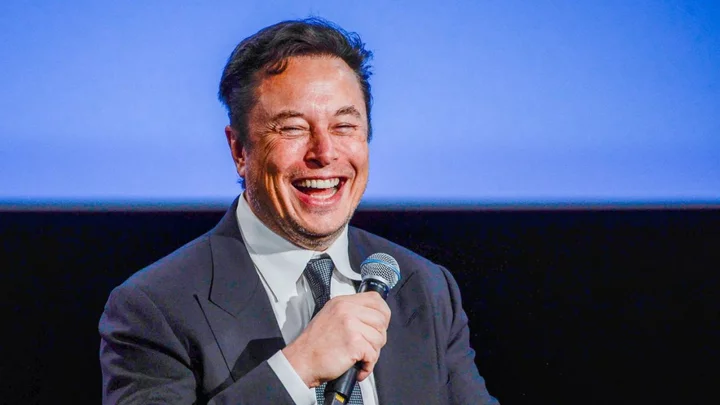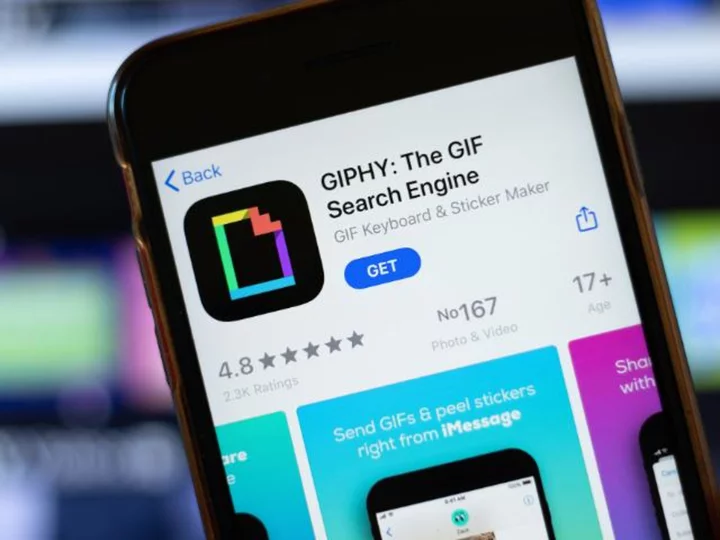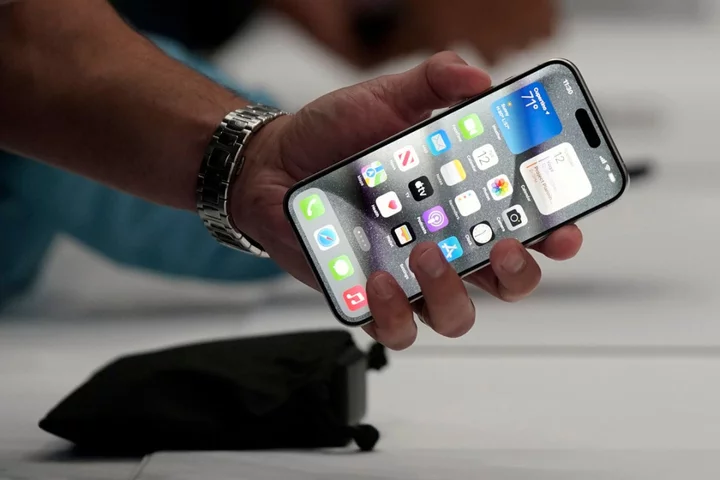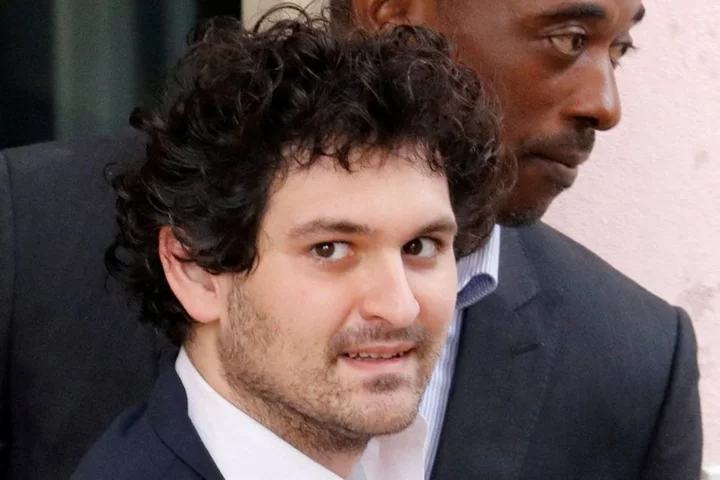It’s hard to remember a time where Twitter didn’t have Elon Musk’s fingerprints all over it.
But it was on 28 October 2022 that Musk took over the social media platform after purchasing it for a whopping $44bn.
In the months that followed, the company changed dramatically - both publicly and behind the scenes - and for many of us, our relationship with the app has never been the same.
Here’s everything Elon Musk has done since buying Twitter.
Kicked things off with a dad joke
“Let that sink in…”
Yes, he really did this.
Made half of the staff redundant
In November, Twitter announced that it was laying off half of its workers – a cut of around 3,740 jobs.
“Twitter has had a massive drop in revenue, due to activist groups pressuring advertisers, even though nothing has changed with content moderation and we did everything we could to appease the activists. Extremely messed up! They’re trying to destroy free speech in America,” Musk wrote at the time.
"Unfortunately there is no choice when the company is losing over $4M/day," he tweeted.
He would also go on to fire all of Twitter HQ's janitors, and issue a childish response to more than 775 discrimination cases against Twitter.
Then publicly humiliated an employee who asked if he'd been sacked
Musk was forced to apologise after a humiliating exchange in which he appeared to mock a disabled Twitter worker.
Days after having access to his work computer cut and following numerous unanswered emails, one worker was forced to directly tweet Elon Musk asking him a seemingly straightforward question: had he been sacked?
Rather than answer it, or get his HR team to do so, Musk decided to publicly put the man through the wringer – subjecting him to a brutal tweet exchange which included a pair of “rolling on the floor laughing” emojis.
The thread has been branded “disgraceful” by thousands of users, who have condemned Musk as the “worst boss ever”.
In the original tweet, senior product designer Halli Thorleifsson wrote: “Dear [Elon Musk], 9 days ago the access to my work computer was cut, along with about 200 other Twitter employees. However, your head of HR is not able to confirm if I am an employee or not. You've not answered my emails. Maybe if enough people retweet you'll answer me here?”
The platform’s infamous boss replied curtly: “What work have you been doing?” before proceeding to engage in a back-and-forth that reads like a live job interview, with questions including: “What changes did you make to help with the youths?” and infantile comments like: “Pics or it didn’t happen”.
The Twitter boss later said that he had received bad information about the situation, and had a video call with the affected staff member to apologise.
The Twitter Blue mess
On 30 October, Musk took to Twitter to share that the "whole verification process is being revamped".
While a blue tick on Twitter used to help limit impersonation and prove the validity of tweets from high-profile individuals such as journalists, Musk decided he didn't like that idea and made the platform's paid subscription option - Twitter Blue - include the coveted verification icon.
Those who didn't want to pay a regular fee to keep their blue tick eventually lost it in April this year.
Got really petty about his social media competitors
So it wasn't long before people were considering jumping ship for rival social media platforms - one of the most popular sites at the time of Musk's takeover being that of the decentralised platform, Mastodon.
Except, Musk seemed to catch on to people fleeing Twitter and sharing their Mastodon links on the app, as the platform suddenly stopped allowing users to post URLs from the other site.
Embarrassing.
In April this year, he also blocked Twitter embeds on Substack, after they rolled out a feature called 'Notes' which bore a striking resemblance to his platform, and in July he threatened to sue Instagram's text-based app Threads.
Reinstated the Twitter accounts of terrible people
Republican congresswoman Marjorie Taylor Greene, former president Donald Trump, psychologist Jordon Peterson, Kanye "Ye" West and "misogynistic" influencer Andrew Tate were all allowed back onto the platform towards the end of November after they were previously banned from Twitter for Terms of Service violations.
For example, Trump was banned following the January 6 insurrection, while Peterson was banned over a transphobic comment made about trans actor Elliot Page.
Ye, meanwhile, was previously suspended for antisemitic tweets, before Musk banned him again following him tweeting a swastika inside the Star of David.
He was allowed back on Twitter eight months later, in July.
'The Twitter Files' non-story
In December, Musk amplified reporting from Matt Taibbi dubbed "The Twitter Files" which was supposed to expose political influence over Twitter and the social media platform's partisan management, but instead just revealed a perfectly legitimate request from the Biden presidential campaign team to remove pornographic images of Hunter Biden.
The ElonJet saga
Then there was all the drama around ElonJet, an account managed by Jack Sweeney while studying at the University of Central Florida which tracked Musk's use of his private jet using publicly available flight information.
'Free speech absolutist' Musk had offered the account owner $5,000 in early 2022 to take down the account, but went further when he was handed the 'keys' to Twitter, as he suspended the account outright. It later returned, but with a 24-hour delay.
Sweeney would eventually troll Musk by joining major rival, Threads.
Temporarily banned a load of journalists
In scenes related to the ElonJet situation, reporters from outlets such as CNN, the New York Times and The Washington Post were suspended from Twitter, with Musk writing: "[The] same doxxing rules apply to 'journalists' as to everyone else."
When one journalist was able to challenge Musk on the bans, he reacted totally rationally by temporarily binning the live audio feature, Twitter Spaces.
The poll which ousted him as Twitter CEO
In December, amid continued scrutiny over his management of Twitter, Musk posted a poll on his future as CEO of the company, allowing users to determine his fate.
Musk would later claim his dog was calling the shots at Twitter, before hiring NBCUniversal advertising chair Linda Yaccarino in May.
Divided the home page into 'For You' and 'Following'
One of the bigger changes to the site itself came in January when an update saw the timeline split into two with ‘For You’ and ‘Latest’ feeds.
A thread from Twitter Support in January read: “See the tweets you want to see. Starting today on iOS, swipe between tabs to see Tweets recommended ‘for you’, or tweets from the accounts you’re ‘following’.
“The ‘For You’ and ‘Following’ tabs replace ‘home’ and ‘latest’ and will be pinned to the top of your timeline so you can easily switch between them. Swipe to switch timelines instead of tapping the [stars] icon.”
The Tesla and SpaceX owner also implemented a "view count" on tweets to let others know how many times a post has been seen. This follows in the footsteps of the video model, where fellow tweeters are shown how many views a video has accumulated.
One of the stranger moves also saw him introduce a marker that lets people see how many times a post had been bookmarked.
So. Many. Outages.
They got so bad, in fact, that Musk admitted in March that the site is "brittle".
In July, things broke some more to the extent that the owner had to implement a 'reading limit' on tweets.
Implementing a bizarre auto-reply from Twitter's press inbox
In March, it started sending poop emojis.
We wish we were joking.
Pathetic name changes
The Twitter CEO switched the site’s usual logo featuring the blue bird to the Doge meme featuring a Shiba Inu named Kabosu in April. The change led to Dogecoin prices surging by 33 per cent.
It seemed like a very random decision, but it turns out he’s had the idea for a pretty long time. Back in 2022, Musk engaged with Twitter user @WSBChairman, who said on March 26 that he should “just buy Twitter… and change the bird logo to a doge”.
In the same month, he also removed the 'w' from the Twitter sign outside Twitter HQ to spell... well, you know exactly what it spells...
Cheesing off bereaved families
In May, Musk announced a 'purge' of inactive accounts, angering those who had loved ones who have since passed away, for whom their Twitter accounts are a way of remembering them.
The Elon Musk vs Mark Zuckerberg cage fight (which is yet to happen)
Seeing the Meta owner as a new competitor after buying out a social media platform, Musk challenged Zuckerberg to a cage fight, which Zuck - who has won a jiu jitsu competition - accepted, but the fight has not actually taken place.
Disappointing.
The actual name change
Oh, sorry, have we been using 'Twitter' to refer to Musk's app? We mean X.
Musk rebranded it to a single letter in July, though many still people still refer to it as its old name.
Oops.
Actually charging people to use X
In more recent developments, Musk has even gone so far as to charge people for the privilege of joining his dysfunctional social media platform.
Earlier this month it was announced that new users in New Zealand and the Philippines will have to cough up $1 (£0.82) a year to access key features such as tweeting, retweeting, liking posts and replying.
'Illegal content and disinformation' over Israel-Hamas war
Now, as the Israel-Hamas conflict continues, Musk has been criticised for his platform allowing disinformation to run rife amid the war, to the point that the European Union - more specifically, European Commissioner Thierry Bretan - wrote a letter to the business owner warning him that his site is "being used to disseminate illegal content and disinformation".
We can't say we're looking forward to another year of Musk's rule...
Sign up to our free Indy100 weekly newsletter
How to join the indy100's free WhatsApp channel
Have your say in our news democracy. Click the upvote icon at the top of the page to help raise this article through the indy100 rankings.









